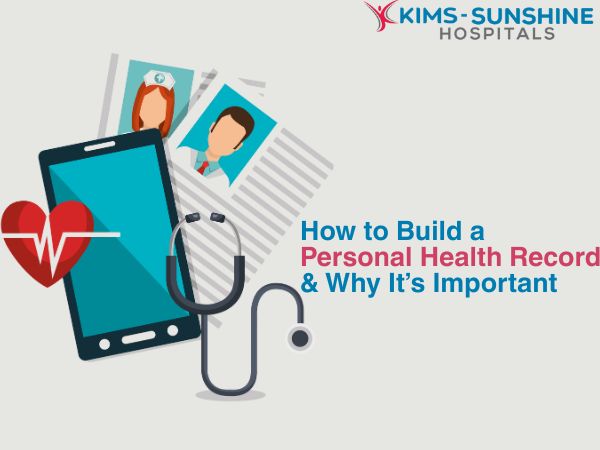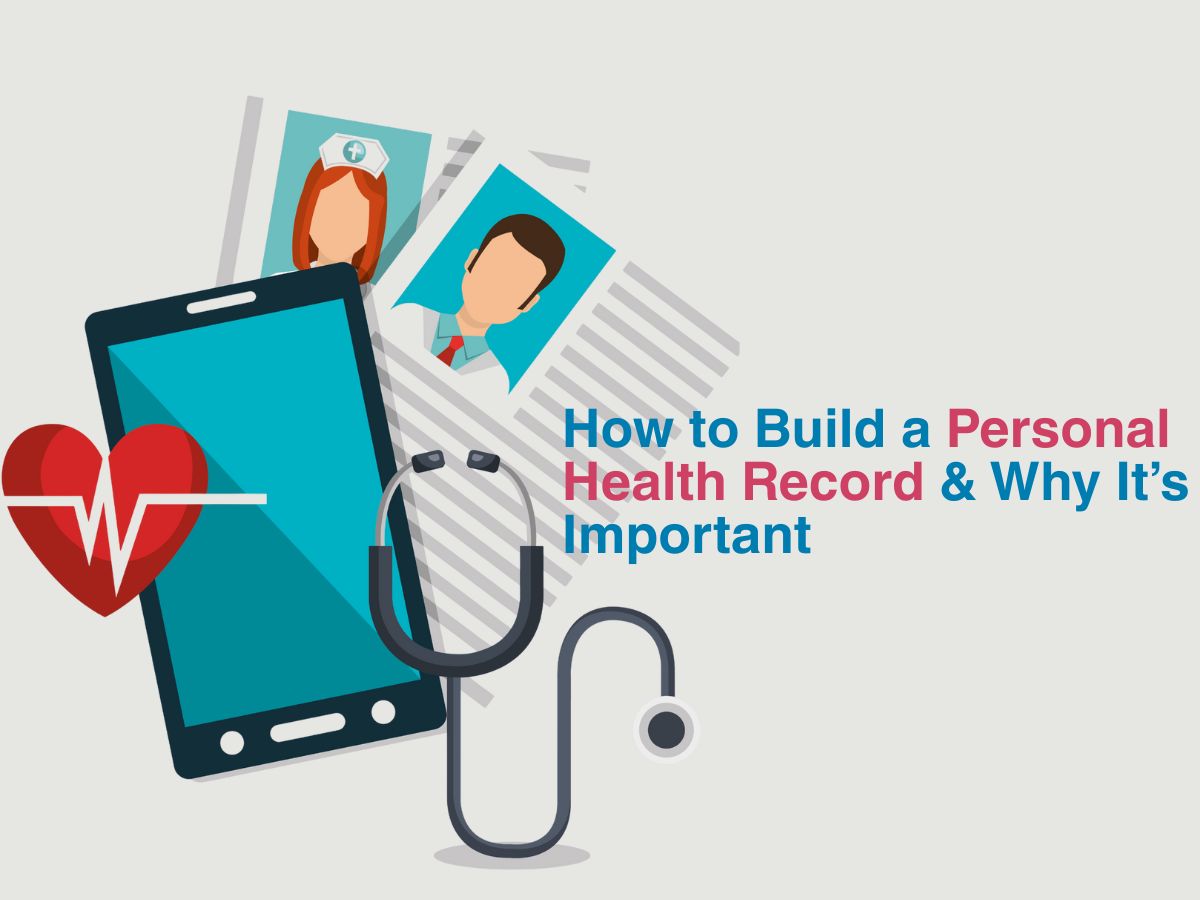
How to Build a Personal Health Record & Why It’s Important
 A personal health record (PHR) is a collection of medical information that has all the record of your diseases and ailments, right down to the medical prescriptions. It is not the same as an electronic medical record (EMR) which is maintained by your healthcare provider. If you are wondering how to organise your health documents, PHR is the answer.
A personal health record (PHR) is a collection of medical information that has all the record of your diseases and ailments, right down to the medical prescriptions. It is not the same as an electronic medical record (EMR) which is maintained by your healthcare provider. If you are wondering how to organise your health documents, PHR is the answer.
Why are personal health records important?
Remember the time when you visited more than one healthcare professional for one or more of your health concerns? Post the visit, you were bogged down by the numerous prescriptions and papers that you had to handle. To rescue you from this plight, a personal health record comes in handy. A PHR is something that you can manage by compiling and updating it on a regular basis. It will contain your basic health information, diseases and allergies that you suffer from, medication prescriptions, contact number of your healthcare providers, etc. You might already have a folder of papers from your medical visits but with advanced technology coming into the picture, it is important to convert this data into an electronic PHR.
Steps to build your own health record
If you want to know how to create a personal health record (PHR), here are a few steps for building your own personal health record. Ideally, your PHR should contain all the below information:
- Name and contact numbers of your healthcare providers
- All types of allergies, including food and medicine allergy
- List of all your medications and their frequency of consumption
- History of procedures and surgeries you have undergone
- Ongoing health problems
- Family medical history
- History of vaccinations
By incorporating all the above information in one digital platform, you can create your own personal health record. Having known this, let us look into some of the digital tools for personal health records. Electronic personal health record (PHR) tools allow individuals to electronically manage and access their health information on the go. These tools include patient portals connected to Electronic Health Records (EHR) and health apps on wearable devices that keep tabs on various health metrics.
Benefits of maintaining a health record
PHRs help individuals manage their overall health in a better way as it contains all the necessary information required in one place, especially during medical emergencies. Some of the advantages of maintaining a health record include:
- Improves patient engagement: By keeping track of their health over time, patients can better manage their health and be more involved in their overall health and wellness.
- Combines information at one place: Since PHRs carry a jist of all the medical information from multiple healthcare providers, it helps in easy navigation of medical information.
- Enhances provider-patient communication: PHRs often have secure messaging features that aid in direct communication between patients and healthcare providers. This streamlined interaction enhances the efficiency of consultations and follow-ups, allowing providers to stay informed about their patients’ health status. Timely communication enables early interventions during emergency situations and fosters a stronger, more collaborative provider–patient relationship.
Conclusion
Personal health records allow better storage and easy access to medical information and foster patient-provider relationship. Having your own PHR encourages you to keep a track of your overall health and wellbeing.






